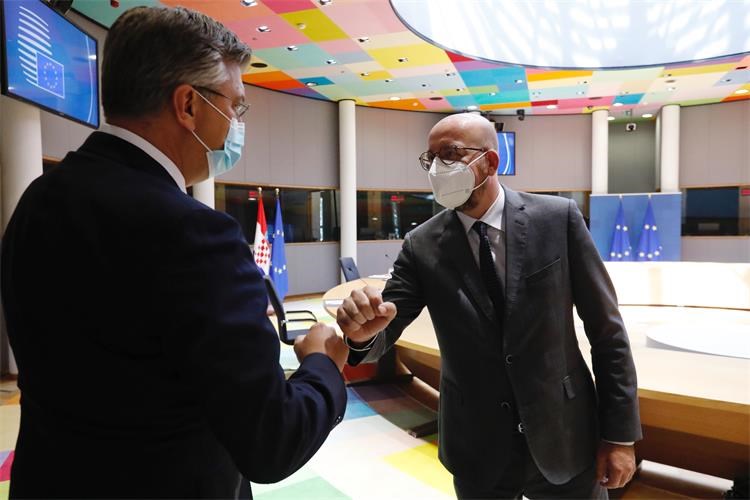- Published: 24.05.2021.
Decision on Croatia's entry to Schengen area expected on the Council agenda during the Slovenian presidency
Croatia hopes its entry to the Schengen area of passport-free travel could be put on the agenda during Slovenia's EU presidency in the second half of this year, Prime Minister Andrej Plenković said on Monday.
"I believe it is possible. We have excellent overall relations with Slovenia and it would be great if that happened during Slovenia's presidency of the Council of the EU," Plenković told reporters.
Plenković discussed Croatia's accession to the Schengen area and the euro area with European Council President Charles Michel and Home Affairs Commissioner Ylva Johansson.
Both the previous and current European Commission have confirmed that Croatia has met all technical criteria to enter the Schengen area and it is now up to the member-states, that is, the Council of the EU, to make a political decision on the matter.
Asked if he expected problems from some member-states, Plenković said that Croatia had succeeded in showing its partners through dialogue that it had met all criteria.
"I believe that we are heading towards a positive decision by the Council," he said.
The EC has said that on 2 June it will announce a new strategy for the Schengen area and two bills on changes to the Schengen evaluation mechanism and the Schengen Information System.
As for Croatia's other strategic goal, entry to the euro area, Plenković said that talks were underway with Executive Vice-President Valdis Dombrovskis and that Croatia could soon achieve that goal as well.
"I believe that we will manage to join the euro area in the next two years," said Plenković.
The Croatian PM and European Council President Michel discussed also the situation in Southeast Europe, notably Bosnia and Herzegovina.
Plenković said that Croatia supported its neighbours' European ambitions, underlining the need to amend Bosnia and Herzegovina's election law so that it could enable parliamentary elections in 2022 and be fair for all constituent peoples and other citizens.
Text: Hina
